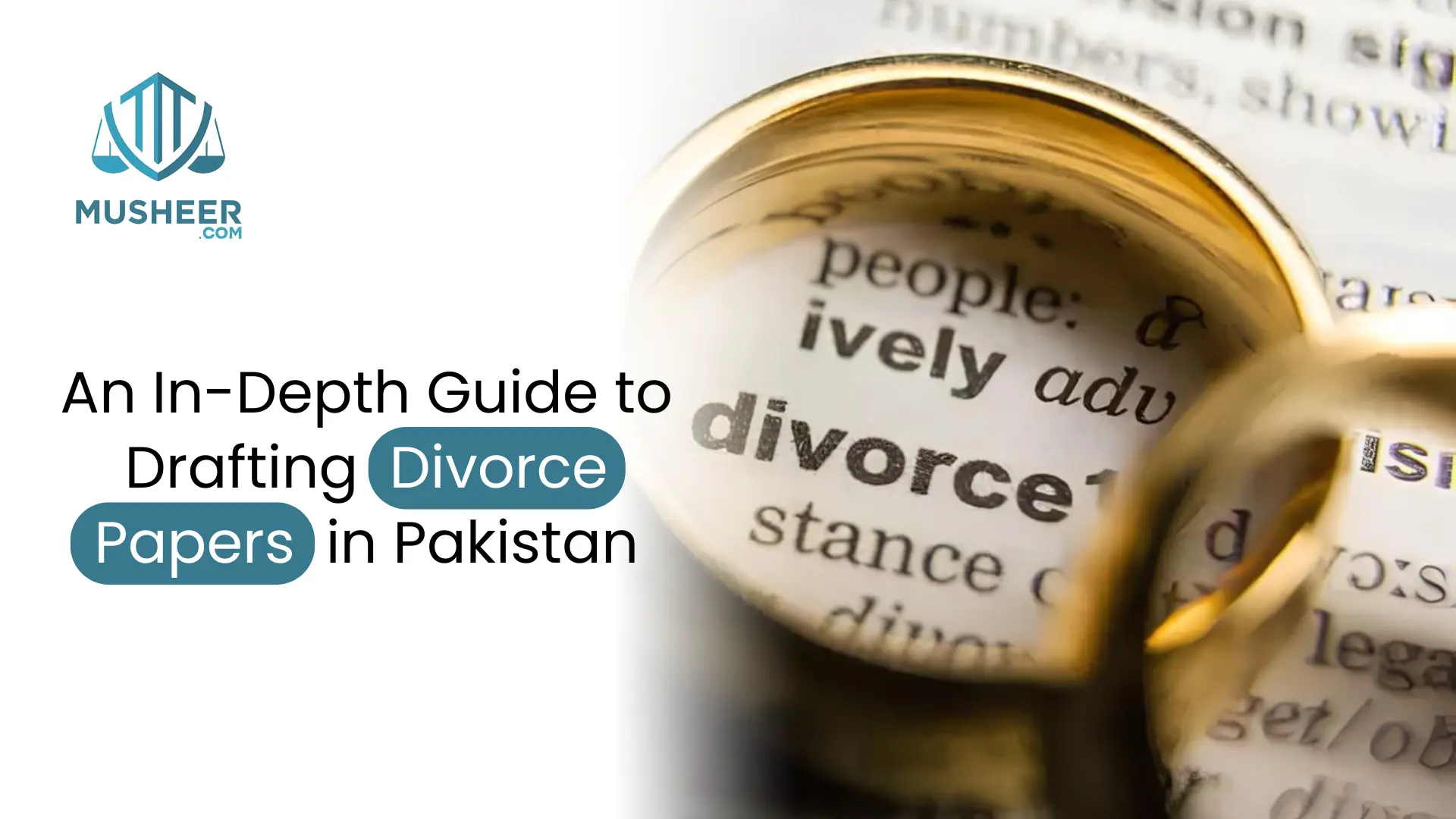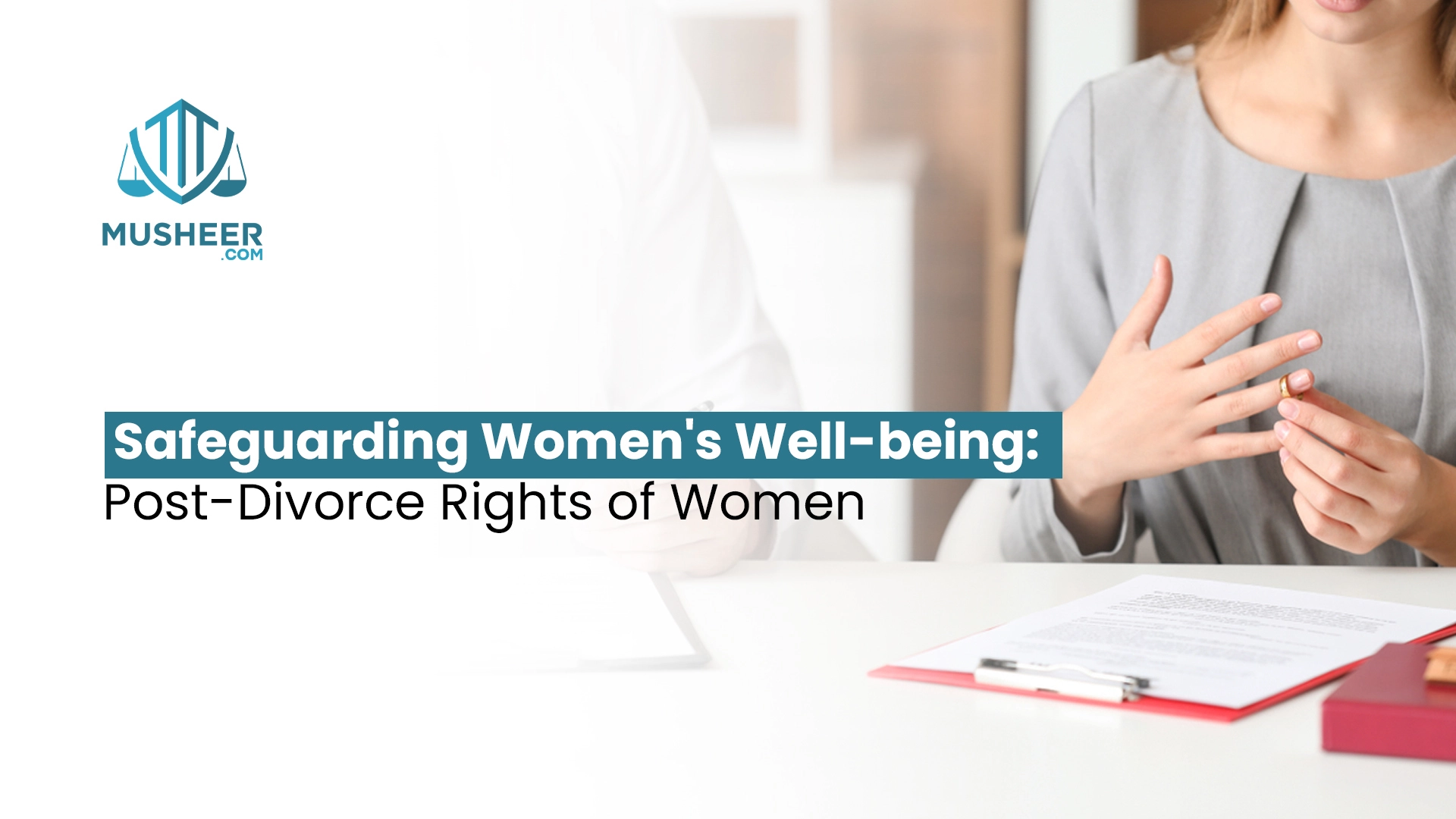Maintenance laws in Pakistan are designed to provide financial support to specific categories of people who are dependent on others for their livelihood. These laws aim to protect vulnerable groups, including women, children, and the elderly, from poverty and destitution by ensuring that they receive adequate financial support from their family members.
Under Muslim law, a husband is obliged to maintain his wife and family, and the term maintenance signifies the amount he is liable to pay for the same. The term used for maintenance under Muslim Law is called nafaqa and it comprehends food, raiment, and lodging, The wife is entitled to maintenance from her husband, despite the fact that she has the means to maintain herself.
Statutory Right Of Maintenance Of Wife
The major laws related to the maintenance of wife in Pakistan are as follows:
- 1. The Muslim Family Laws Ordinance, 1961: This law provides guidelines on maintenance for Muslim men to provide for their wives, children, and dependent relatives. The law lays out the criteria for determining the amount of maintenance, and it is applicable to Muslims only.
- 2. The Family Courts Act, 1964: This law empowers family courts to determine the maintenance amount in case of disputes between family members.
Maintenance Of Wife Is A Fundamental Right Under Islamic Law
In Islamic Law, maintenance is considered one of the fundamental rights of a woman and she can dissolve the marriage for provision of non-maintenance. Pakistani law is also providing this right to a wife under section 2, sub-section (ii) of the Dissolution of Muslim Marriage Act 1939. The superior judiciary is also playing their role for provision of maintenance during marriage, during ‘iddah period to a divorcee and past maintenance.
Maintenance is recognized by a number of sources of Islamic Law including the Holy Qur’ān, Sunnah of the Holy Prophet (PBUH), the Consensus and Logical Reasoning. The Holy Qur’ān has denoted maintenance as a right of woman and children in several verses as states
“But he (the father) shall bear the cost of their food and clothing on equitable terms.” (Surah Baqarah 2:233)
There are some other verses of the Holy Qur’ān explicitly denote that that provision of maintenance is a financial right of a woman and the duty of the husband is to maintain her according to his financial capacity and affordability.
“Let the man of means spend according to his means: and the man whose resources are restricted, let him spend according to what Allah has given him.” (Surah Talaq 65:7)
“Men are the caretakers of women, as men have been provisioned by Allah over women and tasked with supporting them financially.” (Surah Nisa 4;34)
Principles Outlining The Law Of Maintenance Of Wife In Pakistan
In Pakistan, the maintenance of a wife is governed by the Muslim Family Laws Ordinance, 1961. This law applies to Muslims only and provides guidelines for determining the amount of maintenance that a husband should pay to his wife.
Under this law, a wife is entitled to maintenance from her husband during the subsistence of their marriage, and the amount of maintenance is determined based on several factors, including the husband's income, the standard of living of the parties, and the financial needs of the wife.
In case of a dispute between the parties regarding the amount of maintenance, either the wife or the husband may apply to the family court for the determination of the amount of maintenance. The court will take into account the financial circumstances of both parties and will decide on the amount of maintenance that the husband should pay.
It is important to note that a wife is entitled to maintenance even if she has her own income or property. The husband has the legal obligation to provide financial support to his wife and the wife's income does not absolve the husband of his responsibility. However, if the husband dies the right of maintenance also ceases and the obligation to provide for maintenance to the wife shall not pass to the family of the husband.
Syed Ameer Ali in "Muhammadon Law" in Chapter XV titled "Rights and Duties of the Married Parties" describes the duties of the husband to maintain his wife in the following manner:
"The husband is bound to maintain his wife even if' she be residing in her father's house, provided he has not required her to come to his own house or came cohabit with her there. If he has called upon her and lived with him and she has refused without any valid justifiable reason, such as non-payment of prompt dower or illness, she is not entitled to maintenance while, residing in her father's house."
Principles Of Maintenance Highlighted By Superior Judiciary
The following case law on the maintenance of wife in Pakistan elucidates some prominent issues revolving the subject of maintenance of wife.
1) Duty To Maintain During Subsistence Of Marriage
Farah Naz vs. Judge Family Court, PLD 2006 SC 457
The Supreme Court reiterated that it is the legal, moral as well as social duty of the husband under the Islamic Principles to provide adequate maintenance to the wife for her respectable living and he could not neglect to maintain her during the subsistence of the marriage tie.
2) Duty To Pay Maintenance During Iddat
Abdul Rafay Butt vs. Additional District Judge, PLD 2015 Lahore 258
In this case, the Lahore High Court held that the husband is required to pay maintenance to his wife during the period of iddat.
3) Divorce By Khula Does Not End The Right Of Maintenance During Iddat
Iftikhar Ahmad vs. Hasan Pari, 1988 CLC 2355 (Lahore)
The wife’s right of maintenance shall not be absolved merely on the ground that she has sought divorce on basis of Khula. Wife could not be deprived of her right of maintenance during her iddat period even if the divorce by effected by Khula.
4) Wife’s Entitlement To Maintenance Before Rukhsati
Khudai Noor vs. District Judge, Pishin, 2017 YLR 2349 (Quetta)
A wife is entitled to maintenance from her husband during the subsistence of marriage even if Rukhsati had not taken place.
5) Duty To Maintain Divorced And Pregnant Wife Until The Delivery Of Child
Abdul Rafay Butt vs. Additional District Judge, PLD 2015 Lahore 258
In this case, the Lahore High Court reaffirmed that a divorced wife who is pregnant is entitled to maintenance from the husband till the delivery of the child.
6) Duty To Maintain Even If The Wife Does Not Reside With The Husband
Abu Talib Shah vs. Bibi Rukhsar Zehra (2012 CLC 1272 Peshawar)
In this case, the Peshawar High Court held that the husband is required to pay maintenance to his wife even if she is not residing with the husband; provided the wife had a lawful excuse to refuse to live with him
The above-mentioned cases are just the tip of the ice-berg. The right of maintenance of the wife is an absolute right and is greatly emphasizes the importance of the husband's legal obligation to provide financial support to his wife and the wife's entitlement to maintenance even in various situations. However, in cases where the wife refuses to fulfill her marital duties or engages in behavior that is considered to be grounds for divorce in Islam, she may lose her right to maintenance.









